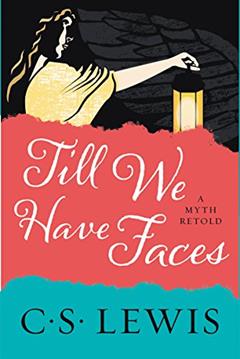Summary of Till We Have Faces: A Myth Retold, by C. S. Lewis
Delve into C. S. Lewis's 'Till We Have Faces' for a compelling exploration of love, jealousy, and identity wrapped in a mythical retelling.
Sunday, September 28, 2025

Welcome to the quirky, twisted, and oh-so-mythical world of Till We Have Faces, where C. S. Lewis takes the classic tale of Cupid and Psyche and sprinkles some hot sauce on it, turning it into a spicy retelling that might just have you questioning your own love life. Buckle up, buttercup, because it's about to get emotional.
In this reimagined myth, we dive into the life of Orual, the less-than-glamorous older sister of the ravishing Psyche. Orual is what you'd call the definition of "the jealous sister"-think of her as the guardian who's simultaneously a massive pain in the neck and a fierce protector. She's got a serious case of ugly duckling syndrome, but don't let that fool you-her "love" for Psyche is about as healthy as a diet of solely junk food. Spoiler alert: it is not healthy at all.
When Psyche becomes the hot new demigod darling of the kingdom, complete with a handsome invisible husband (yes, you read that right), Orual's envy kicks into overdrive. After all, who doesn't love a classic "I'm too good for you" love story? Orual's jealousy leads her to some pretty questionable decisions, proving that love can sometimes be a very thin line between devotion and obsession.
Let's not forget about the "Great God" that Psyche is linked to-Cupid himself. Orual, with her dramatic flair, actually blames the gods for her problems, because who wouldn't take a shot at the celestial beings for personal vendettas? The plot thickens as Orual starts to wrestle with her feelings of betrayal and abandonment after Psyche makes a suspiciously questionable deal with her husband. You know, typical family drama, just with more togas and divine intervention.
Orual's inner monologue is like a wild rollercoaster. One minute she's all about self-pity and existential dread, and the next she's questioning the very fabric of her existence-classic sister stuff, right? Her quest for understanding and recognition builds into a towering wall of psychological struggle, as she demands to be seen and heard. She engages with the idea of masks, cleverly analyzing that sometimes, to truly connect, you have to reveal your face, and her realization takes the reader straight to the heart of vulnerability and identity.
As the story unfolds, we encounter themes of jealousy, love, betrayal, and the ultimate question of whether or not we can truly know someone else. And don't fret; the ending will slap you in the face like a surprise plot twist you didn't see coming, reminding you that divine love is a complex beast. Just when you think you have it all figured out, bang-there's another layer to peel back.
If you're up for a literary adventure that's as much a psychological examination as it is a mythological retelling, Till We Have Faces provides both that and a biting commentary on human relationships. So grab your figurative sword and shield, prepare for some introspection, and dive into the myth that dares to ask: "What happens when love becomes a mask that obscures the truth?" Spoiler: It gets messy.
In sum, this isn't just a retelling of a myth. It's a deep dive into the murky waters of human emotion, layered with Lewis's beautiful yet brutal prose. Whether you're rooting for Orual or facepalming at her decisions, one thing's for sure-you'll be entertained, educated, and entertained again. Now go forth and unravel your own mythical mess!
Maddie Page
Classics, bestsellers, and guilty pleasures-none are safe from my sarcastic recaps. I turn heavy reads into lighthearted summaries you can actually enjoy. Warning: may cause random outbursts of laughter while pretending to study literature.